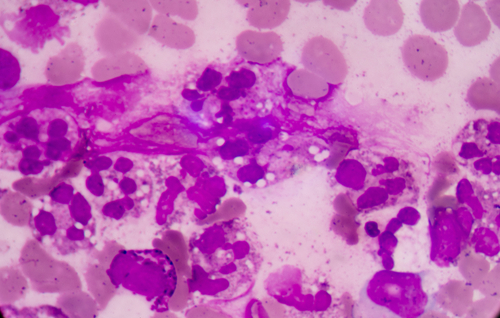Researchers at the Instituto Gulbenkian de Ciência (IGC) in Oeiras, Portugal, say because anti-cancer drugs limit inflammation, they could be a potential treatment for sepsis.
The study, published in eLife, reveals that the class of drugs used in cancer treatment limit the unrestrained production of inflammatory mediators by the immune system. The discovery positions these drugs as potential treatments for inflammatory diseases, such as sepsis, which kills more people than oncologic diseases.
The data also reveal previously unknown mechanisms that likely contribute to these drugs’ effectiveness in chemotherapy.
Sepsis is the body’s extreme response to infection. The researchers noted that to survive a serious infection it is not enough to get rid of the infectious agent; it is also necessary to limit the damage the immune response can cause to the organs. The Innate Immunity and Inflammation research group at the IGC focuses on this immune response, which is still not a part of the therapeutic intervention on sepsis.
Anthracyclines
The solution could be a class of drugs commonly used to treat cancer: anthracyclines. In the past, the team demonstrated that these drugs prevent organ failure in mice with sepsis without affecting the infectious agent’s burden.
This discovery inspired a clinical trial in Germany, which is evaluating if the use of anthracyclines improves the course of sepsis and reduces risk of death.
To explore this, researchers tested different anthracyclines in the immune system cells of mice. They said the results were surprising: the anticancer drugs limited the levels of pro-inflammatory mediators produced by the cells when administered in low doses. This effect was maintained when researchers treated mice with sepsis with these drugs.
The next challenge was to understand how these drugs control inflammation.
“We discovered that anthracyclines control relevant inflammatory genes in the immune system cells,” said Ana Neves-Costa, a researcher at the IGC and co-author of the study.
By forming a complex with the cell’s DNA, the drugs avoid the binding of factors that drive the expression of these genes. As a result, cells produce less inflammatory molecules.
“This new mechanism is particularly important because it lacks the side effects caused by administering high doses of these compounds in chemotherapy,” Neves-Costa said.
New solution
“With this work we found a possible new solution to treat diseases caused by exaggerated inflammation, such as sepsis and rheumatoid arthritis, more effectively,” said Luís Moita, principal investigator at the IGC leading the study.
“Given that these drugs are already approved for use in the clinics, repurposing these for new treatments will be much easier than starting from scratch.”
It is also likely that the regulation of gene expression and the limitation of inflammation described in this study, which were previously unrecognized, contribute to the effectiveness of anthracyclines in cancer treatment.
This study was developed by the Instituto Gulbenkian de Ciência in collaboration with several national and international institutions, in particular the Instituto de Medicina Molecular (IMM) in Portugal, the Institute of Structural Biology and the European Molecular Biology Laboratory (EMBL) in Germany, and the Leiden University Medical Center in the Netherlands. Funding was provided by the European Commission Horizon 2020 and Fundação para a Ciência e Tecnologia (FCT).
Partnering 2030: The Biotech Perspective 2023






